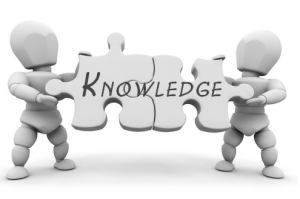Protecting Your Tribal Knowledge Isn’t an Event, It’s An Ongoing Process.
Whether it is the corporate knowledge, intellectual capital, tacit knowledge, or tribal knowledge that your employees have, once they walk out the door and don’t come back, the loss of that corporate knowledge can have an enormous negative impact on your operation.
This employee knowledge is one of your most important assets and needs a process in place to capture and protect it. Tacit, or employee knowledge, is the relevant information that resides in an individual’s head. It’s not written down, but is simply the knowledge someone has gathered from experience. It’s often untapped, because it is hidden. But it is a treasure trove of knowledge that, if lost, can literally bring an organization to its knees. For example, an employee at Texas Instruments, who worked on a production line retired. No big deal right? Well, it was, because she was the only one who knew that the best way to work the machines she worked on was not what was written down in the operating manual. Rectifying the resulting mistake of not capturing her “tacit or tribal knowledge” cost $200,000! General Mills estimated that the departure of just one experienced marketing manager could cost millions of dollars from the loss of their critical marketing and client knowledge.
Yet today, many executives have no idea of what knowledge they are losing or from whom and from where. What will the effect of the departure of an R&D scientist have on the speed of a new product under development? Will the loss of a senior sales person reduce revenues, etc.? Companies purchase what is known as “Key Man” insurance. This is an insurance policy usually around a key executive like a CEO or CFO, that if they should pass away or leave unexpectedly, the company would collect on their loss to help them financially recover from it. Often times, the board of directors require those companies to purchase a policy like that so they are protected. However, those same companies that purchase those policies don’t always consider what affect the loss of someone as simple as a production line worker, or anyone else, would cost them.
Employee knowledge can only be captured when it is found. Therefore, the key to successfully leveraging their knowledge within the organization is to accurately find those people who can solve that particular situation and then capture what they know. For example, the Texas Instruments production person would have been a good place for Texas Instruments to start before that person retired.
Organizations that can identify and link experts who can share the knowledge and experiences they have (tribal knowledge) benefit by providing higher quality solutions that are delivered faster and at a lower overall cost. Plus, those people who have that knowledge and experience actually become mentors for others. An additional advantage of capturing and leveraging that knowledge will go a long way in helping new hires ramp-up faster, as well as helping other people working in those areas become more productive and effective in their jobs.
Sales departments, for example, should capture the knowledge they have around how they effectively sell to their target audience, what issues they have that you solve and what are some of the key reasons why they bought from you. If you can copy and process that knowledge, it should reduce the sales cycle time and increase your overall effectiveness in winning new opportunities.
Capturing and storing this knowledge is not a one-time event, instead it is an ongoing process. The risk of not capturing this knowledge, as you can see from the two examples above, can have major negative financial and operational effects on the whole organization. Organizations need to treat the loss of this knowledge as any other corporate risk and assess the consequences of doing nothing. If you had a major disaster and lost some of your key employees and the knowledge they had around their jobs, how long would it take you to recover, and could you?
Corporate leaders need to come up with a plan to identify islands of expertise in each department, have a process of how they will go about capturing that knowledge, and then have a repository that will allow them to store and retrieve that knowledge when they need it. They need to recognize that as their organization changes and grows, the corporate knowledge of their employees will also change, so they need to treat this as an ongoing process and not a one-time event.
At least that’s the way I see it what say you?
About the author:
Chuck Carey is an accomplished sales, marketing and business executive with more than 40 years of experience in the information technology industry. Chuck’s vast knowledge of the problems facing all types of organizations around identifying and capturing corporate knowledge makes him ideally suited to work with and consult in that area. If you would like to see if Chuck can help you and your organization please contact him through this website.


